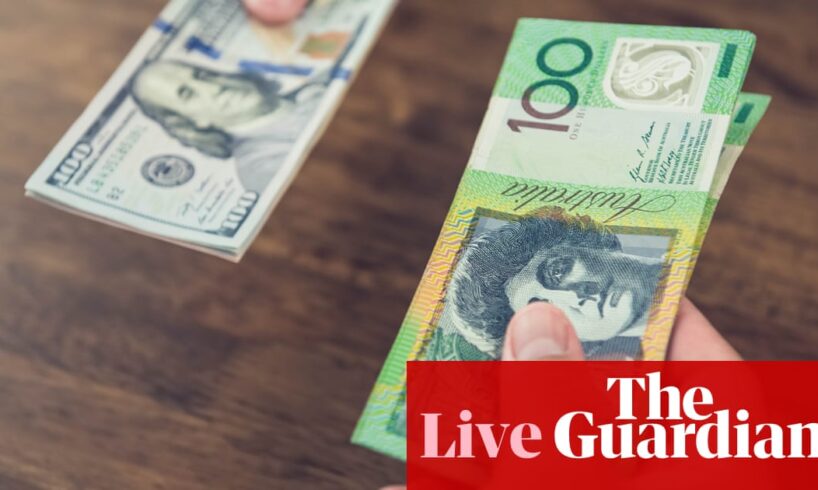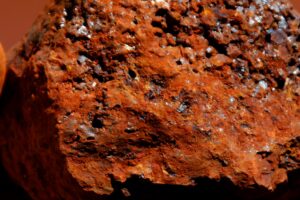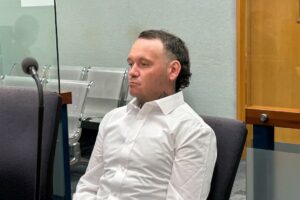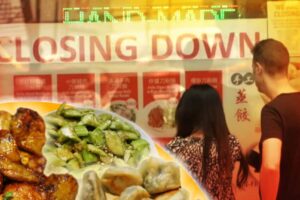
Australian dollar hits nine-month high against USD
Patrick Commins
The Aussie dollar has reached its strongest against the greenback in nine months, rising about half a penny overnight to just over US65.9 cents in early trade.
Besides a brief plunge coinciding with Donald Trump’s shock tariff announcements in early April, the Australian currency has strengthened by US4 cents through 2025, despite growing alarm around the potential fallout from Trump’s erratic trade policy.
But Joseph Capurso, CBA’s head of international economics, warned that the “complacency” in global financial markets – Wall Street pushed to a new record high overnight – meant that the Aussie was “at risk of sharp falls over the next few months”.
Futures trading suggests the local sharemarket will open 0.3% higher when the ASX opens this morning.
The Australian dollar has been recovering in recent weeks. Photograph: Jono Searle/AAPShare
Updated at 01.15 CEST
Key events
Show key events only
Please turn on JavaScript to use this feature
‘We keep Australians safe. That is what we do’
Staying with the prime minister’s press conference. Antony Albanese was also asked about the Jillian Segal’s report and the recommendation to screen visa applicants for antisemitism.
Albanese was asked if agreed with Segal that “if someone who suggests that the state of Israel should be eliminated, that is an antisemitic view, and they should be deported”. He responded:
We have our system which goes through security clearances, and that’s a condition that with that, we make across the board, we examine whether someone’s an appropriate person to be granted a visa to Australia. We we assess people on the basis of our national security assessments. We do that across the board. We keep Australians safe. That is what we do.
Albanese also said that the government already screens for antisemitic views, and pointed to US rapper and artist Kanye West was recently barred from travelling to Australia after the release of his widely condemned song Heil Hitler.
Share
Updated at 02.37 CEST
Albanese asked about Palestinian woman detained in Sydney raid
Anthony Albanese was asked during the press conference about the Palestinian who was detained by immigration authorities after a pre-dawn raid in Sydney this morning.
The prime minister said that had had a briefing about the incident, but would not say more because “we don’t talk about national security issues”.
Maha Almassri left Gaza via Rafah in February 2024 and entered Australia on a tourist visa a short time later, Mohammed said. She has been living with her son since.
This morning after a pre-dawn raid, she was told she had failed a visa character check and taken to Bankstown police station and then transferred to Villawood detention centre.
More on Maha Almassri here:
In a document seen by Guardian Australia, Almassri was told her visa had been cancelled “personally” by the assistant minister for citizenship and cultural affairs and that the minister “reasonably suspects that the person does not pass the character test” and was “satisfied that the cancellation was in the national interest”.
According to the Migration Act, a person does not pass the character test if they have been assessed by the Australian Security Intelligence Organisation (Asio) to be a direct or indirect risk to security.
A separate document seen by the Guardian suggested Almassri was granted a bridging visa in June last year after applying for a protection visa.
The grandmother has more than 100 Australian relatives living across the country, her family has said.
Share
Updated at 02.21 CEST
Albanese speaks to reporters ahead of China trip
Anthony Albanese is speaking to media now ahead of his visit to China this weekend.
Asked about expanding trade opportunities with China, he said:
We will engage constructively across a range of issues and a range of potentials that is there. In areas such as green energy, there is a real prospect of further engagement.
There will be a round table in which Australian and Chinese businesses will be interacting.
Share
Updated at 02.11 CEST
Pro-Palestine protest to again be held outside Sydney electroplating business
A pro-Palestine protest will again be held at the site where Hannah Thomas was injured during an interaction with police.
Organisers have said the protest, which will be held today outside SEC Plating in Sydney, will be to demonstrate against the business’s alleged manufacturing of parts in the F-35 jet program. SEC Plating has denied it manufactures parts in the F-35 jet program.
Organisers said they will also be demonstrating against “police powers applied” during the recent protest where Thomas and four others were charged.
Thomas, a former Greens candidate, who ran against Anthony Albanese in the seat of Grayndler at the federal election, was charged alongside four others after attending a recent protest outside the business.
During an interaction with police, Thomas sustained an injury to her right eye. She recently underwent a second surgery.
NSW police said after a preliminary review of body-worn video of her arrest that there was no information to indicate misconduct. It has launched a critical investigation into the incident which will be overseen by the independent police watchdog.
SEC Plating in Belmore in Sydney’s south-west. Photograph: Steven Markham/AAPShare
Updated at 01.44 CEST
Elderly driver still to be questioned over fatal crash in Melbourne
A woman is dead and a child has been seriously injured after an elderly driver allegedly lost control of her car, hitting three pedestrians before ploughing through a fence near a playground.
The Toyota Yaris, driven by the 91-year-old woman, mounted the footpath on Coleman Road at Wantirna South in Melbourne’s east on Thursday afternoon.
Three people – a 59-year-old woman, a man, 60, and a two-year-old boy – were hit by the car after the she lost control.
The woman died at the scene.
Both the boy and the man were taken to hospital with serious or life-threatening injuries.
The driver was treated for minor injuries in hospital and was still to be interviewed by detectives as of Friday morning.
Superintendent Justin Goldsmith said Victoria police were yet to confirm the relationship between the victims but it was believed they were related.
The trio was walking in the same direction as the car was travelling when it struck them.
The out-of-control car continued down the road for another 200 metres, hitting a street sign and smashing through a fence before coming to a stop near a playground.
– via Australian Associated Press
Share
Updated at 01.56 CEST
Sydney man charged with threatening a federal politician on social media
A Sydney man has been charged with threatening a federal politician after allegedly making threats on social media during the election.
The Australian federal police (AFP) said the man would face Downing Centre local court in Sydney today after an investigation began in March 2025. Police said the Kingswood man made the threat against the unnamed parliamentarian on social media before the 2025 federal election.
Police said:
After a forensic examination of the man’s devices, which were seized during the search warrant, the man was issued with a court attendance notice to face one count of threatening to cause harm to Commonwealth public official, contrary to section 147.2(1) of the Criminal Code 1995 (Cth).
The offence carries a maximum penalty of nine years’ imprisonment.
The AFP’s acting commander Mark Baron said:
The AFP supports freedom of speech and political expression, but I want to make it clear we will never tolerate criminal behaviour, including threats and harassment.
The man is due to face court at the Downing Centre in Sydney today. Photograph: Mike Bowers/The GuardianShare
Updated at 01.50 CEST
Australian dollar hits nine-month high against USD
Patrick Commins
The Aussie dollar has reached its strongest against the greenback in nine months, rising about half a penny overnight to just over US65.9 cents in early trade.
Besides a brief plunge coinciding with Donald Trump’s shock tariff announcements in early April, the Australian currency has strengthened by US4 cents through 2025, despite growing alarm around the potential fallout from Trump’s erratic trade policy.
But Joseph Capurso, CBA’s head of international economics, warned that the “complacency” in global financial markets – Wall Street pushed to a new record high overnight – meant that the Aussie was “at risk of sharp falls over the next few months”.
Futures trading suggests the local sharemarket will open 0.3% higher when the ASX opens this morning.
The Australian dollar has been recovering in recent weeks. Photograph: Jono Searle/AAPShare
Updated at 01.15 CEST
Civil liberties council says antisemitism plan does not ‘strike the right balance’
Josh Butler
The NSW Council for Civil Liberties has claimed the recommendations of antisemitism envoy Jillian Segal do not “strike the right balance”, warning some could silence protest.
Segal’s 49 recommendations, handed down yesterday, include calls for stronger hate speech laws; changes to social media algorithms and AI; threatening funding and grants for universities, academics, and arts or cultural bodies; and a plan to “monitor media organisations … to avoid accepting false or distorted narratives”.
Timothy Roberts, president of the NSW Council for Civil Liberties, claimed governments nationwide were seeking to “pass laws and policies repressing legitimate political speech to silence protest and prevent assembly.”
He said:
This is all happening in circumstances where legitimate criticism of the Government of Israel is being conflated with antisemitism. Sometimes wilfully.
This report, made by an unelected envoy, has many recommendations that do not adequately acknowledge this context, nor does it strike the right balance. If the Government does not adequately address these issues our civil liberties will be undermined and our community only further divided.
Share
Updated at 01.11 CEST
Proposed antisemitism definition could have ‘chilling effect on people who criticise Israeli policies’, expert says
A proposal for the Australia government to adopt a controversial definition on antisemitism could lead to a “chilling effect on people who criticise Israeli policies”, according to Prof Ben Saul.
Saul, a University of Sydney expert and a UN Special Rapporteur on human rights and counter-terrorism, appeared on ABC Radio National a short time ago where he was asked about Jillian Segal’s proposal to tackle antisemitism.
Saul explained that while the International Holocaust Remembrance Alliance definition itself is “pretty bland and doesn’t actually tell you all that much”, there is an issue with the “whole bunch of examples which are given underneath that definition to guide its implementation”.
He continued:
The problem with those is that some of those examples are very vague. They conflate criticism of Israel with antisemitism, and they lead, in practice, to a kind of real chilling effect on people who criticise Israeli policies.
Certainly there’s been a really disturbing increase in anti semitic acts in Australia and governments and others in society. Need to do more to combat that. The Holocaust Remembrance definition is absolutely not an appropriate way to go about doing that.
It’s not consistent with international human rights law.
Segal appeared earlier on ABC Radio National a little earlier and was asked about claims by Kenneth Stern, the lead drafter of the laws, that the definition was being weaponised and was never intended to be used as a hate speech code.
Segal responded that we had moved on from that debate.
Asked whether we had moved on from it, Saul said:
Well, she obviously has. The rest of the world certainly hasn’t.
And of course, that point is a critical one, because it was designed as a kind of awareness raising and educative tool, but now it’s going to be used as a kind of real world disciplinary tool, to sack academics, to strip money from universities and arts organisations. And if that’s the case, definitions then need to be really precise. I mean, you need lawyers to draft them.
Share
Updated at 01.07 CEST
‘That definition is the globally accepted definition of antisemitism’
Sticking with Jillian Segal, who yesterday released her proposal to tackle antisemitism.
Segal was asked on ABC Radio National about her recommendation for the Australia government to adopt the controversial International Holocaust Remembrance Alliance definition of antisemitism.
It was pointed out during the interview that Kenneth Stern, the lead drafter of the definition, has said it is being weaponised and that he never intended it to be a hate speech code. Stern has said he created it so European Data Collectors could know what to include and exclude when collecting data on antisemitism.
Asked if, given Stern’s concerns, Segal had sought his views about the definition before making the recommendation, she responded: “I certainly didn’t.”
She continued:
The train has moved on that way, and Kevin Stern has been left behind. That definition is the globally accepted definition of antisemitism around the world. Of course, there are always criticisms, but there are criticisms of everything.
Here is an opinion piece that Stern wrote for the Guardian about the definition being applied to US university campuses in 2019. In it he says: “It was never intended to be a campus hate speech code” and doing so would “harm not only pro-Palestinian advocates, but also Jewish students and faculty”.
Share
Updated at 00.55 CEST
Jillian Segal questioned on antisemitism measures
The federal government’s expert adviser on antisemitism, Jillian Segal, is speaking on ABC Radio National about her proposal to combat antisemitism.
She was asked about criticism from the Jewish Council of Australia – a group of progressive Jewish academics and teachers and writers and lawyers – that say the document “reads more like a blueprint for silencing dissent rather than building inclusion”.
Segal responded:
That’s not true. OK, the document is a whole of society document which focuses on educating people about what antisemitism is.
There are hot spots where we have some entrenched, I would say antisemitism, but certainly hatred, and we need to tackle those areas specifically, like universities.
Share
Updated at 00.51 CEST





